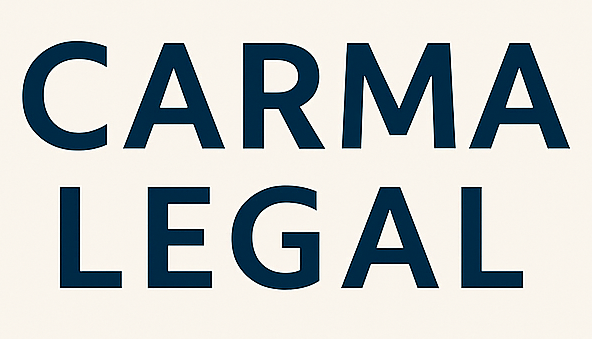Understand wrongful death cases
Facing the unexpected loss of a loved one due to someone else’s negligence can be overwhelming. Engaging a wrongful death attorney for families early on helps you navigate complex legal processes and focus on healing. Understanding the foundation of these claims is the first step toward seeking justice.
What qualifies as wrongful death
A wrongful death claim arises when a person’s death is caused by another party’s negligent, reckless, or intentional act. Common grounds include medical malpractice, car accidents, workplace incidents, and defective products [1]. Unlike criminal proceedings, these cases are civil actions aimed at financial compensation rather than criminal punishment.
Common wrongful death causes
Recognizing typical scenarios can help you determine if you have a valid claim. Frequent causes include:
- Car accidents and fatal collisions, responsible for thousands of deaths annually
- Truck accidents, accounting for roughly 9% of fatal crashes in the U.S. [2]
- Medical errors during surgery or treatment, such as anesthesia complications
- Workplace incidents, including construction and industrial accidents
- Defective products that result in fatal injuries
According to the Centers for Disease Control and Prevention, there were 200,955 unintentional deaths in 2020, many of which could form the basis of a wrongful death action.
Recognize legal complexities
Wrongful death claims involve numerous procedural and evidentiary challenges. A lawyer experienced in catastrophic injury and fatal claims can guide you through these complexities, protecting your rights every step of the way.
Statute of limitations
Filing deadlines vary by state and missing them can bar your claim entirely. For example:
| State | Time limit | Exceptions |
|---|---|---|
| Ohio | 2 years | Discovery rule, minor tolling [3] |
| New Mexico | 3 years | Personal representative must file |
| Texas | 2 years | No exception for minors beyond age 18 |
An attorney manages these timelines and invokes exceptions when applicable, ensuring you retain your right to seek compensation.
Proving liability
To succeed, you must establish that the defendant owed a duty to the decedent, breached that duty, and directly caused the death. Gathering evidence involves:
- Accident reports and medical records
- Expert testimony from engineers, medical professionals, or accident reconstruction specialists
- Witness statements and photographic documentation
- Financial records demonstrating economic losses
This thorough investigation prevents insurance companies from devaluing your claim and bolsters your chance for a fair settlement.
Evaluate attorney benefits
Working with a skilled advocate who specializes in fatal claims offers critical advantages you simply cannot replicate on your own.
Advocacy and negotiation
Attorneys handle all communications and negotiations with insurance adjusters. They understand tactics insurers use to minimize payouts and protect you from accepting a lowball offer. By negotiating on your behalf, they aim to maximize the compensation you receive.
Case valuation
Determining the true value of a claim involves accounting for all damages unique to your family’s situation, including lost income, medical expenses, funeral costs, and emotional suffering. An experienced lawyer draws on case precedents and statistical data to ensure your claim reflects the full extent of your losses [4].
Managing legal deadlines
From filing the initial complaint to responding to motions, civil litigation requires strict adherence to procedural rules. Your attorney will oversee every deadline, reducing the risk of dismissed pleadings or forfeited rights.
Seek financial recovery
Securing compensation is often the primary goal of a wrongful death claim. Understanding the categories of damages helps you set realistic expectations.
Types of damages
Damages in wrongful death cases typically fall into three main categories:
Economic damages
Cover quantifiable financial losses such as:
- Lost earnings and future income
- Medical and funeral expenses
- Loss of inheritance or pension benefits
Non-economic damages
Address intangible losses, including:
- Pain and suffering endured by the decedent
- Loss of companionship and consortium
- Emotional distress of surviving family members
Punitive damages
Awarded in cases of egregious fault to punish the wrongdoer and deter similar conduct. Not all jurisdictions allow punitive awards.
Distribution of settlement
State laws dictate how proceeds are divided among survivors. In Texas, for instance, distributions typically go to the surviving spouse, children, or parents, with other relatives excluded [5]. Knowing these rules ensures fair allocation to those you wish to support.
Choose the right attorney
Your choice of counsel directly impacts the outcome of your case. Look for a lawyer who combines expertise with compassion for your situation.
Key attorney traits
Experienced wrongful death attorneys possess:
- Empathy and strong communication skills to support you emotionally and keep you informed [6]
- Deep legal knowledge of personal injury and fatal claims
- Thorough investigation skills, including collaborating with experts
- Dedication to your cause, pursuing every avenue for full compensation
Questions to ask
When consulting potential lawyers, consider asking:
- How many wrongful death cases have you handled?
- What were the average settlement amounts in those matters?
- Can you outline your approach to investigating liability?
- How will you keep me informed about case progress?
- What is your fee structure and are there any hidden costs?
These inquiries help you gauge experience, communication style, and transparency.
Take proactive steps
While your attorney handles the legal work, your early actions can strengthen your claim and preserve vital evidence.
Gathering evidence
Collect and organize:
- Medical bills, invoices, and insurance correspondence
- Photographs of the accident scene and injuries
- Contact information for witnesses and first responders
- Any video or electronic data related to the incident
Providing this material promptly allows your attorney to build a robust case.
Consulting promptly
Due to tight filing deadlines, seek legal counsel as soon as possible. Prompt action not only ensures compliance with statutes of limitations but also prevents loss of time-sensitive evidence.
Protect your family’s future
A wrongful death lawyer or compensation lawyer for wrongful death advocates for your rights, helping you secure the resources your family needs. By choosing an attorney skilled in fatal claims, you gain an ally dedicated to justice and lasting financial support.
If you’re facing the aftermath of a preventable loss, contact a qualified firm today. With the right legal advocate by your side, you can focus on healing while your attorney pursues the full compensation you deserve.








